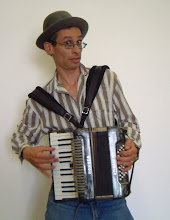Another article from my Jewish Post series:
----------------------------
What would they do without us?
Prominent in my parents’ record collection back in the
sixties was a collection of Edith Piaf’s Greatest Hits. Piaf, in addition to
being a great singer, was a very compelling and iconic figure for France and
for the world at large. Perhaps no one, not even De Gaulle, symbolized the
courage and tragedy of that nation just emerging from its wartime ordeal as did
the Little Sparrow. “La Vie En Rose” is
her most famous song, but many others are instantly recognizable: “Non, Je ne
regrete rien” became a kind of anthem for the French Foreign Legion during the
Algeria conflict. But my favorite was probably “Les Trois Cloches”, which
became a hit in 1946. Briefly, it is the story of three milestones in a man’s
life: the day he is born, the day of his marriage, and the day he dies. Each
milestone is marked, in the chorus, by the ringing of bells: “une cloche sonne
sonne…”. The song is a homage to the
steadfast, simple peasant and his faith in the eternal. Despite all, life will
go on; and for that matter, France will go on, as is evident from the thrilling
resonances of Jean Villard-Gilles intricate poetry as sung by Piaf.
The French are of course inordinately proud of their
language. And notwithstanding the universal appeal of the song as attested by
its international success, one has to believe that the French must have felt a
particular collective pride in the sharing of these very personal emotions
through the medium of their national language in the hands of their national
icon, Piaf.
I started including an instrumental version of the song in
my solo piano repertoire around twenty years ago, and I very quickly noticed
how audiences would perk up when they recognized the song. My version was
probably more based on the American Country version, “The Three Bells”,
popularized in the late fifties by Jim Ed Brown and the Browns (no relation to
Little Jimmy Brown!). I learned the words and it became one of my most popular
and requested standards during the years when I used to entertain at the Times
Changed on Main Street.
It was only much later that I learned the history of the
English lyrics made famous by Brown and his sisters. It turns out they were
actually the brainchild of one Bert Reisfeld, and Austrian Jew who escaped
Europe before the war. Reisfeld does not shy away from the Christian symbolism
of the French lyric; in fact, he embraces it, making it if anything more
particular and less universal by utilising specific phrases such as “lead us
not into temptation/bless this hour of meditation”. As for the style, it is
true that an English speaker looking at a French text will tend to overestimate
is floridity on account of the Latinate forms which sound high-toned to our
ears next to their homelier Anglo-Saxon equivalents; but even taking that into
account, Reisfeld’s poetry is much more plain than that of Villard-Gillles. And
yet it is no less moving for all that. The song reaches its emotional climax at
the very end when Jimmy Brown has died and gone to heaven; the congregation meets
as always in the chapel to the sound of ringing bells, and prays:
“Lead
us not into temptation
May his
soul find its salvation
In Thy great eternal love.”
I can’t get over the fact that it took a Jew to express in
such a moving way some of the most Christian sentiments ever put to music. It
is also fascinating to me that both versions of the song are so intensely
evocative of virtually identical emotions in such very different cultural
contexts, and that the transplanted American version is no less at home in its
local context than the original French version was for Piaf’s listeners. From
my own experience in playing this song for audiences, I have to believe that
every listener, whether Christian, Muslim, Jew or even atheist, is responding
in virtually the identical way at the emotional level.
Marty
Green has recorded a Yiddish version under the title ”The Ballad of
Yankel-Yisroel”. You can find it on his album “A Boy Named Sureh: A Collection
of All-New Yiddish Classics”.

1 comment:
Well, sort of. But White Christmas is such a secular song that I don't really give Irving Berlin much credit for contributing to Christianity.
The one that would be mind-boggling, if it were true, is the speculation that Adolphe Adam, who wrote the incredible music to the deeply religious "O Holy Night", was Jewish. But that rumor seems to be regarded with great skepticism.
Post a Comment